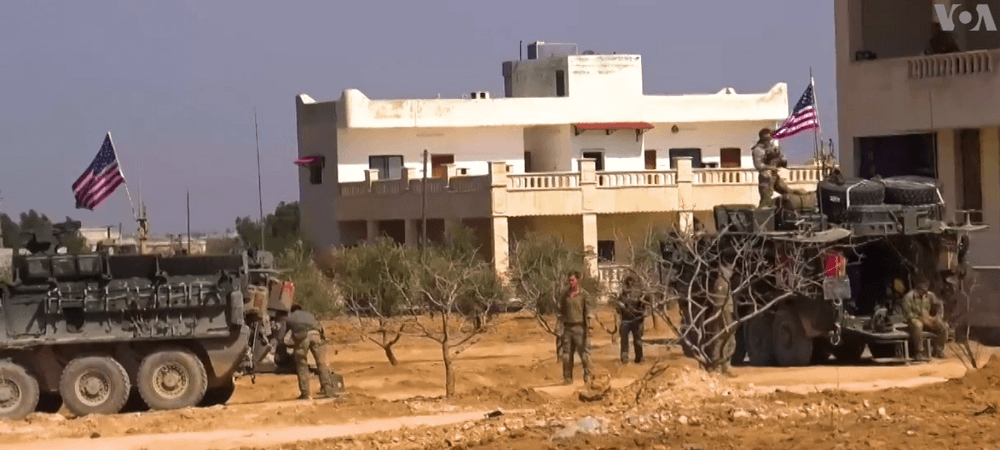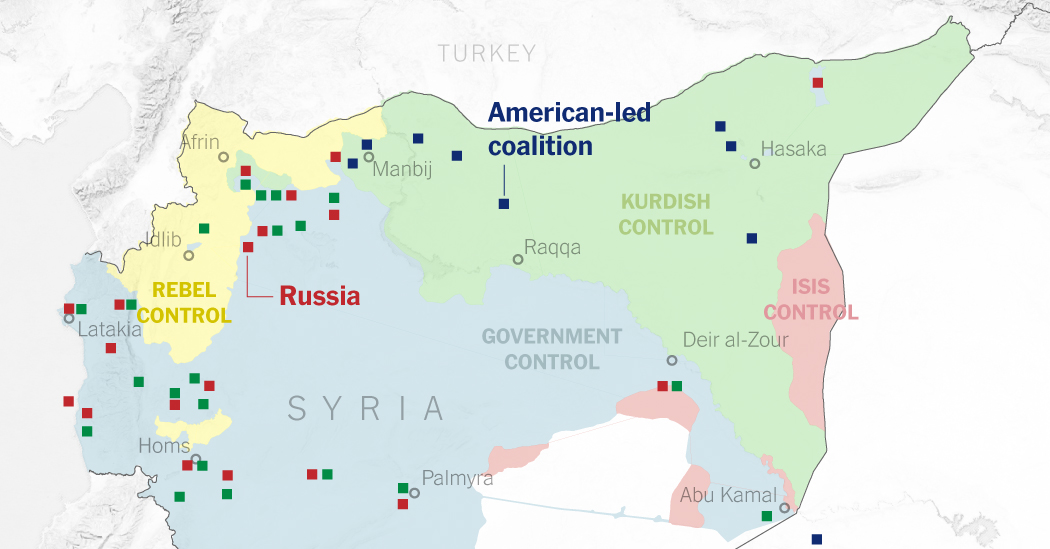US to leave 200 troops in Syria
February 24, 2019 | Expert Insights

Despite President Donald Trump’s promises to withdraw American troops out of Syria, the US intends to maintain a presence on the ground with a “small peacekeeping group” for an unspecified “period” of time, the White House said.
Background
Over the span of several centuries, Syria, which was at the forefront of the Islamic Caliphate witnessed multiple invasions and occupations. The Romans, the Crusaders and the Turks have tried to gain control of the region.
The Syrian Civil War has been going on since 2011. It began during the Arab Spring protests, due to resentment towards the government of President Bashar al-Assad. The war is being fought by several factions: the Syrian government and its allies, a loose alliance of Sunni Arab rebel groups (including the Free Syrian Army), the majority-Kurdish Syrian Democratic Forces (SDF), Salafi jihadist groups (including al-Nusra Front) and the Islamic State of Iraq and the Levant (ISIL), with a number of countries in the region and beyond being either directly involved, or rendering support to one or another faction.
The Syrian government has often been accused of conducting chemical warfare against its own citizens in rebel regions. In April 2017, news emerged of an alleged chemical attack on a rebel-held Syrian town. At least 74 people, including 11 children, were killed in Khan Sheikhoun, Idlib province. At the time, the Syrian government once again denied culpability and Russia backed the Assad government. US President Donald Trump launched 59 Tomahawk missiles in response just two days later.

Analysis
“A small peacekeeping group of about 200 will remain in Syria for a period of time,” White House spokeswoman Sarah Sanders said in a statement without elaborating. Trump took the world by surprise back in December, when he announced the US withdrawal from Syria without specifying a timetable.
The initiative was not well received in the Pentagon, even forcing Defense Secretary Jim Mattis to resign after clashing with Trump, as both the generals and politicians have been claiming that US presence in Syria is vital and that Islamic State (IS, formerly ISIS/ISIL) terrorist group would inevitably re-emerge if all of some 2,000 Americans leave.
The US withdrawal is being stalled by concerns about potential Turkish incursions into the territories currently controlled by the US-backed Syrian Kurds. Trump had another phone call with his Turkish counterpart Recep Tayyip Erdogan on the issue. Washington wants Turkey to agree to a buffer ‘safe zone’ in north-eastern Syria and is also contemplating arming the Syrian Kurds, despite Ankara's strong opposition.
While the US continues its diplomatic manoeuvring, some noted the irony, wondering if the White House was using the term ‘peacekeeping’ correctly or was even aware of what it actually means. Others questioned the logic and the motive of maintaining such a contingent on the ground, noting that 200 troops could serve as a human shield, but is unlikely to really sway the outcome of the conflict.
Traditionally, the term peacekeeping has been used to describe the UN Blue Helmets whose missions are strictly mandated by the Security Council. American troops, however, hardly have any legal basis to remain in Syria, as they had never been invited by the official government in Damascus.
Counterpoint
President Trump’s decision to withdraw the troops does not have strategic reasoning behind it. It can be safely assumed that the troops have been withdrawn only to satisfy his election promises. Additionally, the US never committed a large-scale military presence in Syria, and a majority of the troops in the country are military advisers, logistics and other military support personnel who are partnering anti-Assad forces such as the Kurdish YPG.
Abandoning the Kurdish allies also would cripple future American efforts to gain the trust of local fighters for counterterrorism operations, including in Afghanistan, Yemen and Somalia.
Assessment
Our assessment is that the US’s decision to withdraw troops from Syria is a strategic victory for Russia, Iran and the Assad government. We believe that the presence of just 200 US troops will enable Pro-Assad forces to launch a sweeping counter-offensive against the remaining resistance forces such as the Kurdish YPG.








Comments